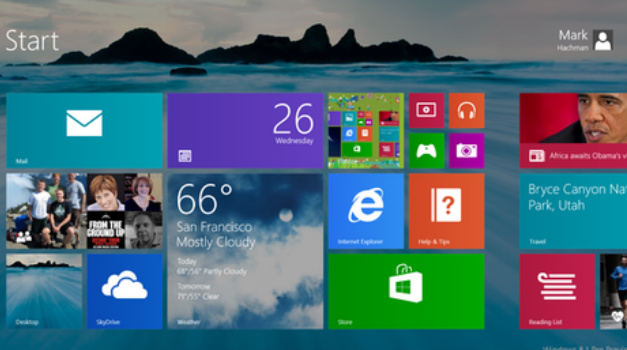Microsoft has begun clamping down on sham Windows Store apps that try to dupe users into paying for free software, the company announced Wednesday.
“Most of the developers behind apps that are found to violate our policies have good intentions and agree to make the necessary changes when notified,” said Todd Brix, general manager for the Windows Store, in a blog post . “Others have been less receptive, causing us to remove more than 1,500 apps as part of this review so far.”
The Windows Store is the official source of Windows 8’s (and 8.1’s) ‘Modern,’ (née Metro) apps, the touch-based programs designed for tablets and touch-enabled notebooks.
Earlier this year, Brix’s team changed Windows Store apps’ certification – the process under which apps are admitted to the market – to require newly-submitted programs be clearly named, properly categorised and appropriately identified with an icon. Those modifications were made, said Brix, to “better ensure that apps are named and described in a way that doesn’t misrepresent their purpose”.
The same requirements have now been extended to apps already in the store.
No coincidence
The timing of Brix’s blog and Microsoft’s efforts to cleanse the Windows Store was no coincidence: More than a week ago, How-To Geek described its probe of the store in a piece titled “The Windows Store is a Cesspool of Scams – Why Doesn’t Microsoft Care?”
In the story, How-To Geek pointed out worthless apps, some as expensive as $8.99, that did little more than point users to links for downloading Apple’s iTunes (free), Mozilla’s Firefox (also free) and VideoLAN’s VLC Player (yes, free). The publication also found fake – and paid – versions of Adobe’s Flash Player, Google’s Picasa, King’s Candy Crush Saga and Mojang’s Minecraft.
How-To Geek blamed Microsoft for the scam-app pollution. “Here’s one of the most shocking parts of this. People from Microsoft are actually examining each of these scammy apps, checking their content, and approving them,” the site said, pointing out pertinent parts of Microsoft’s certification process.
The apps How-To Geek fingered have been removed from the Windows Store, presumably as part the 1,500 Brix claimed had been bounced out.
How-To Geek’s story was widely cited by other websites, blogs and publications last week, reigniting charges that the Windows Store was packed with junk.
Although Brix offered no explanation of why Microsoft had approved the apps it has subsequently removed, he pledged that his team would continue its crack-down. “We recognise that we have more work to do, but we’re on it,” Brix said. “We’re applying additional resources to speed up the review process and identify more problem apps faster.”
A quick look at MetroStore Scanner, which tracks each day’s new and updated apps, showed that Brix and his team have their work cut out for them. On Tuesday, according to MetroStore Scanner, 12 copies of the free KMPlayer, a media player owned by a Korean TV streaming company, were published to the Windows Store. However, the dozen KMPlayer copies – all using the transparently copycat name of ‘KM* 5.1 Player’ but each with a different icon – were priced at either $0.99 or $1.99.
The real KMPlayer is currently at version 3.9.
MetroStore Scanner’s tally of the number of apps in the Windows Store was approximately 172,000 as of late Wednesday, meaning that the apps removed so far represented less than 1% of the total in the e-mart.
Computerworld






Subscribers 0
Fans 0
Followers 0
Followers